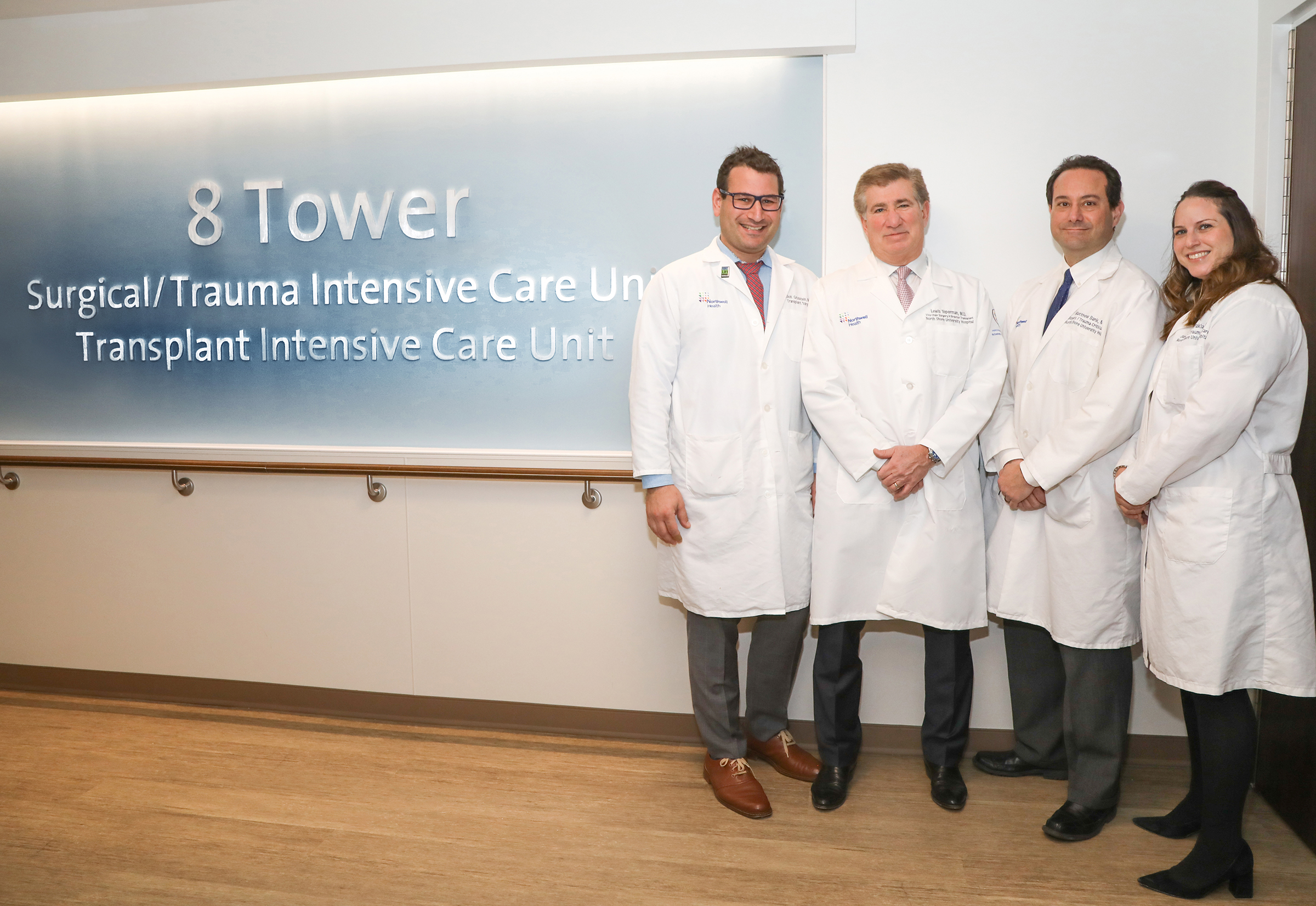North Shore University Hospital has a new surgical and transplant intensive care unit that opened this week, a nearly $26 million investment with 20 rooms that more than doubles the hospital’s intensive square unit square footage.
The transplant part of the unit was designed to host Long Island’s first liver transplant program, which Northwell hopes to launch by May, said Dr. Lewis Teperman, Northwell’s director of transplant services.
For now, however, it supports all of the transplants the health network already offers, such as kidney transplants. The rest of the unit supports surgical work.
With the unit, the Manhasset hospital now has more than 13,000 square feet in its intensive care unit capacity.
“The unit is both transplant and surgical, so it’s going to take care of thousands of people,” Teperman said. “Thousands of people will come in and out through that unit.”
It includes 18 private rooms, three of which are isolation rooms and two that are waiting rooms for family members. Digital technology allows doctors to monitor patients 24/7, Teperman said.
“It’s a beautiful unit,” he said. “It’s really as innovative as you can get with all the technology.”
Northwell is anticipating final approval from the state for its liver transplant program so that it can launch within the next two months.
Long Island patients currently have to travel to New York City for such operations, which is unnecessarily taxing, Teperman said.
There are about 1,200 people awaiting liver transplants throughout the state, he said, and about 40 percent of them fall into Northwell’s coverage area.
“There’s no reason for people to travel,” Teperman said. “The technology and the expertise is here. It is my vision that in five years this will be the place to come for transplant patients, especially in the Northeast.”



